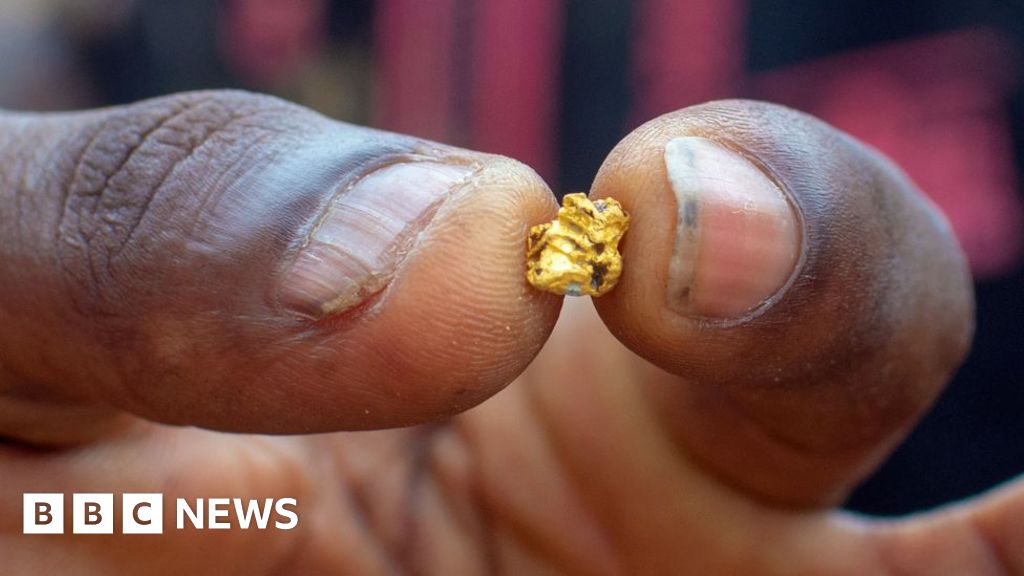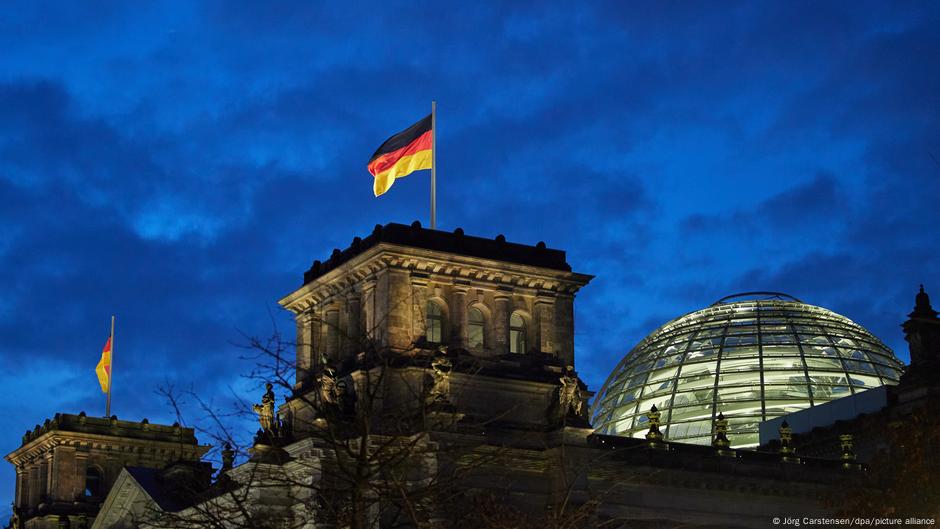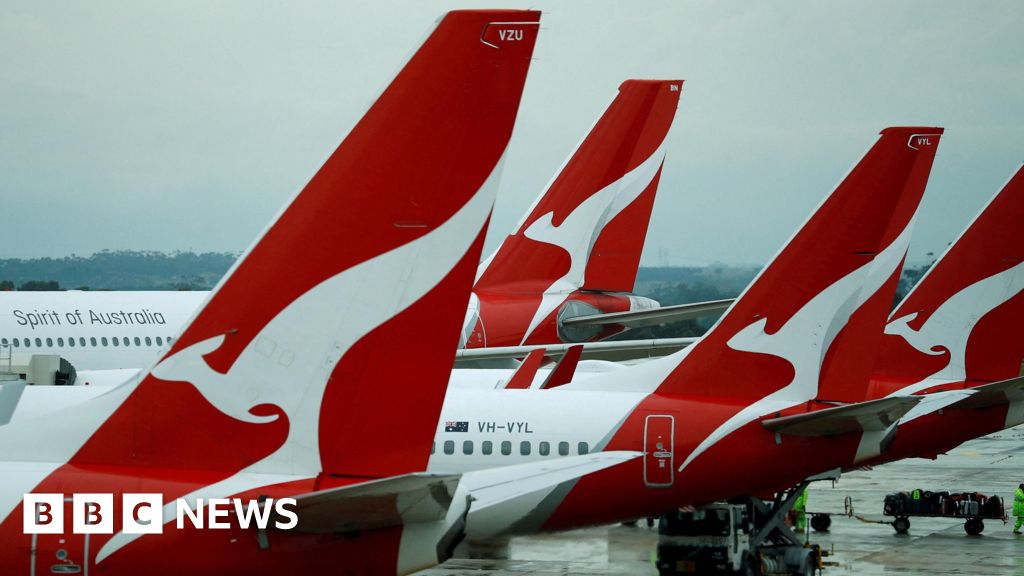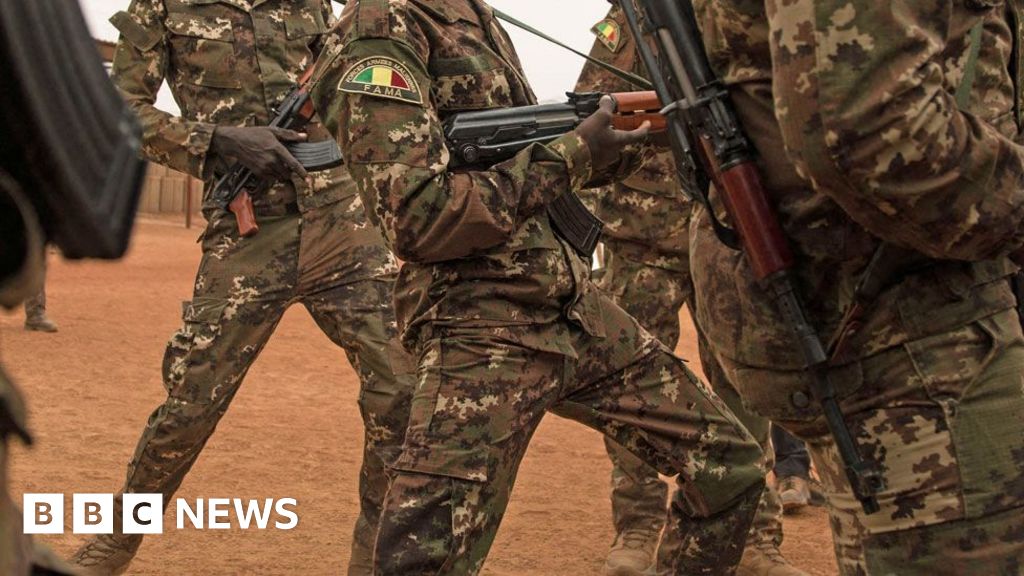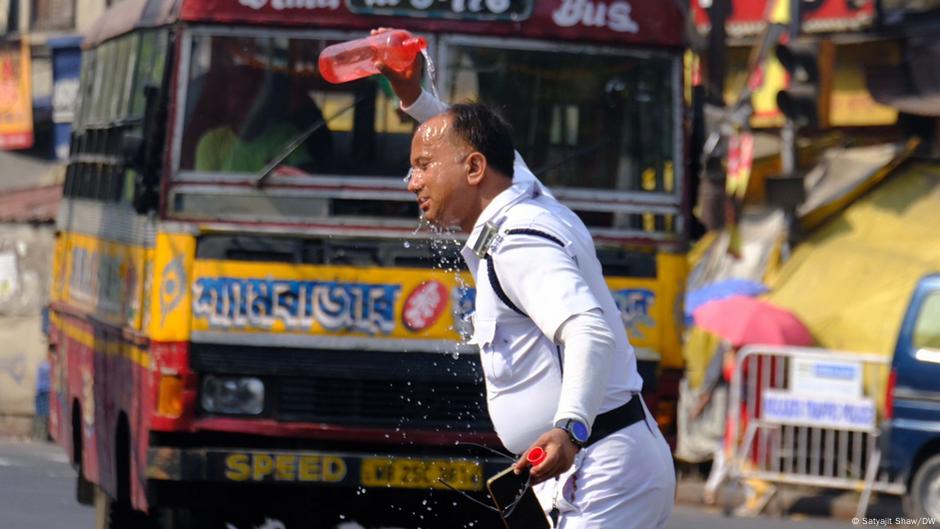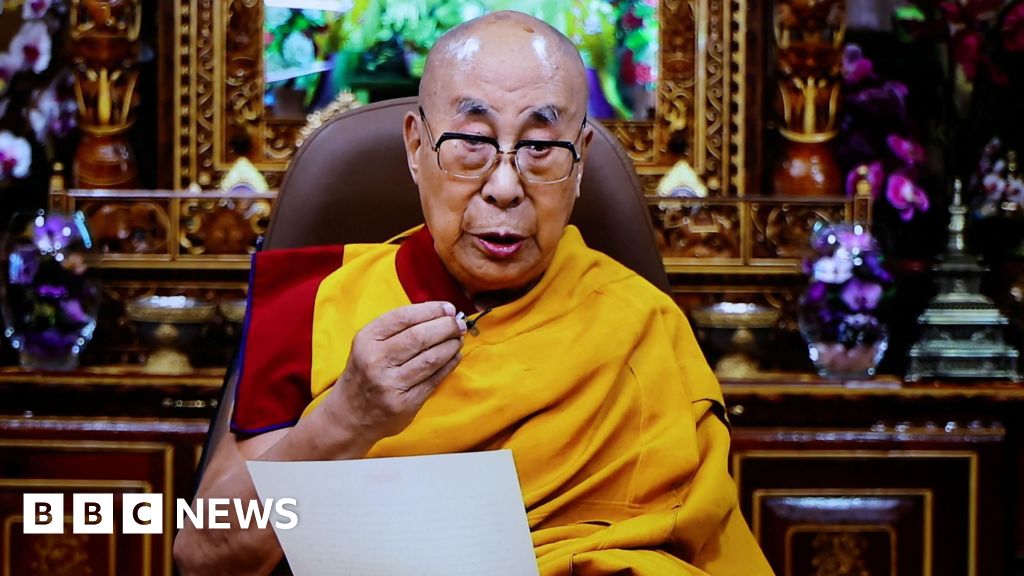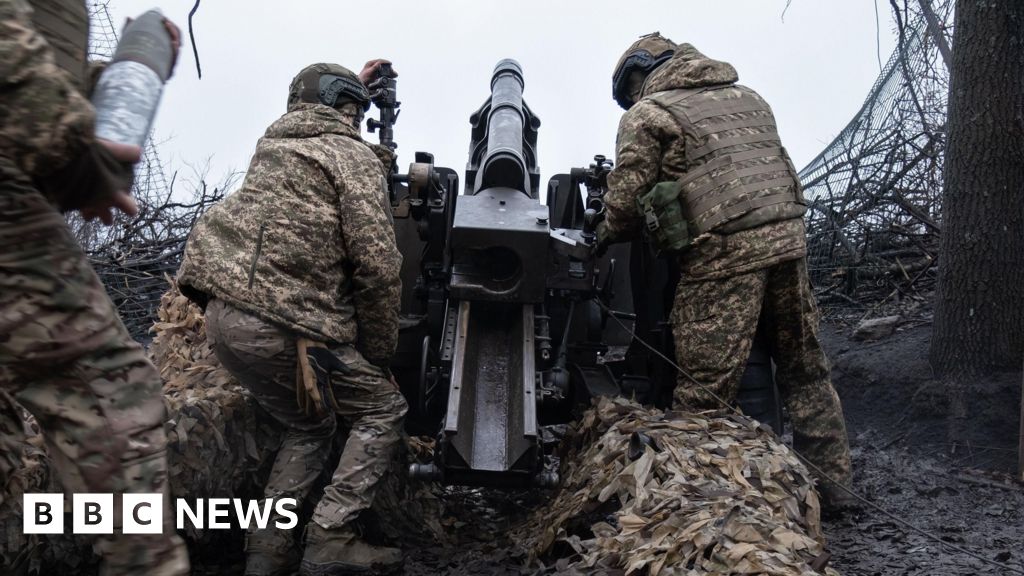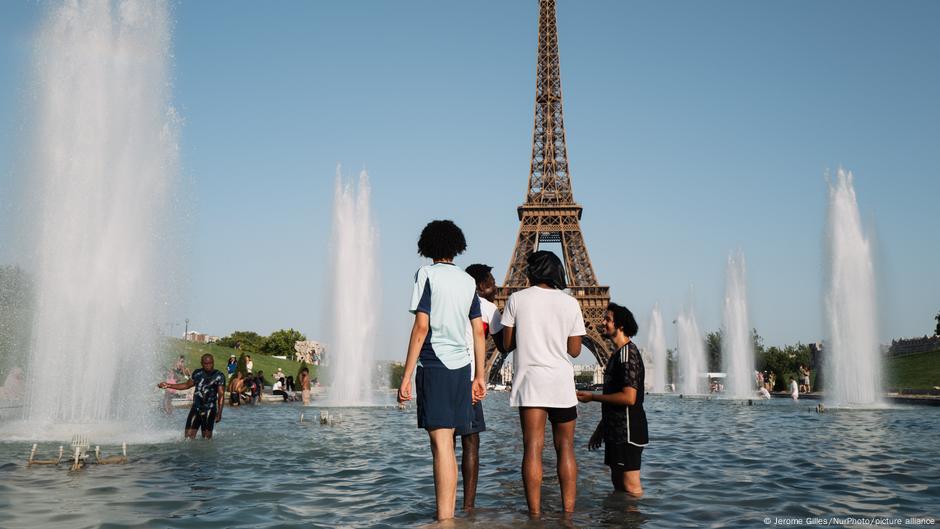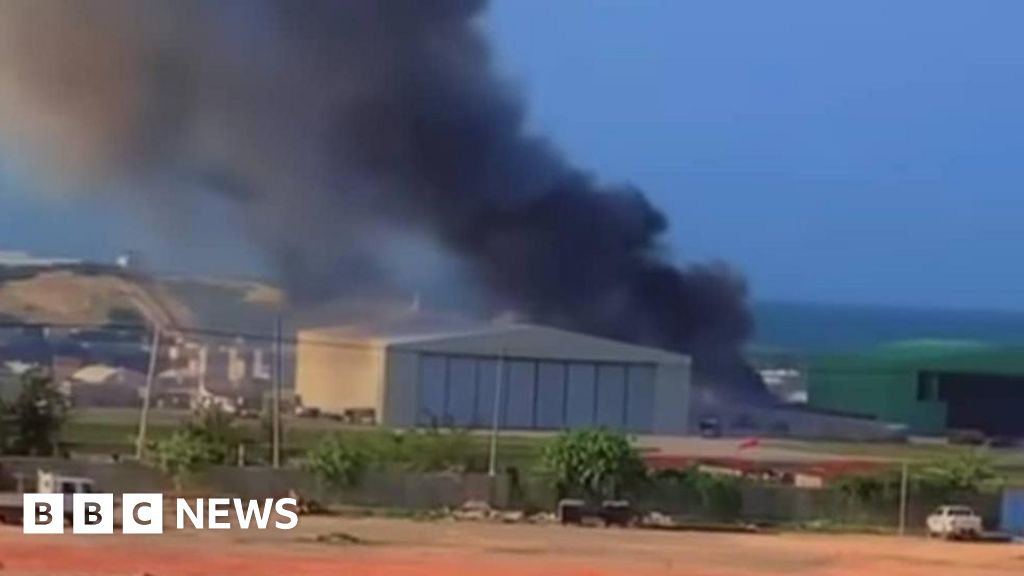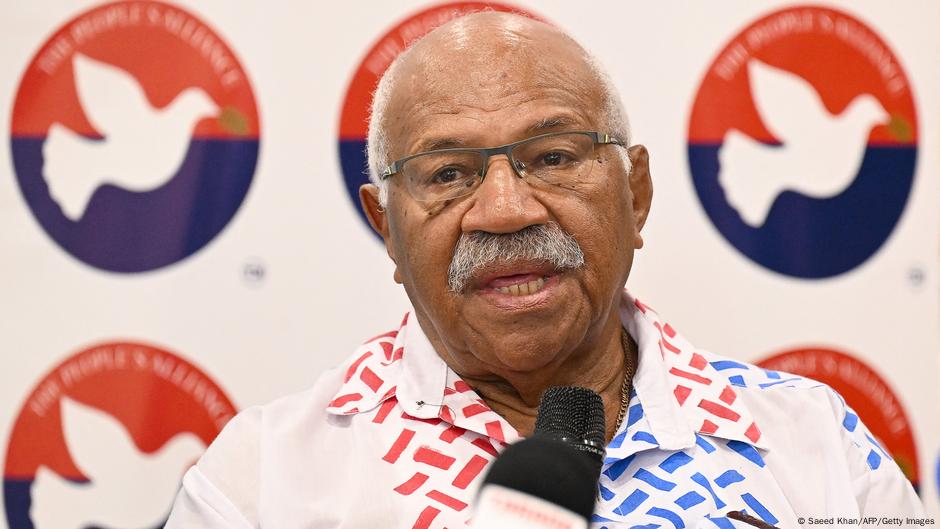How 'blood gold' is fuelling conflict in West Africa
15 hours agoShareSaveJacob BoswallBBC MonitoringShareSaveGetty Images
It has been a good year for gold. A host of turbulent events in the global economy has driven up prices for the glittery commodity to record highs in 2025.
In a world of tariffs and international conflict, gold appeals to investors as one of the few remaining stable assets. Everyone wants a piece of the action, from central banks to large institutions like hedge funds, and retail investors. But few know where their gold comes from, or much about the conflicts it may be fuelling in the countries where it is mined.
For the governments of West Africa's Sahel region, the stakes are even higher. Gold is a lifeline for the military juntas of Burkina Faso, Mali, and Niger, who are beleaguered by jihadist insurgencies, regional isolation, and the ravages of climate change.
"Because gold prices have been at a historic high… the military governments are hoping that they will be able to benefit directly," Beverly Ochieng, a senior researcher at global consultancy firm Control Risks, told the BBC.
Together, the three Sahel states produce around 230 tonnes of gold per year, according to the World Gold Council's estimates, or about $15bn (£11bn) at the current market rate.
A lack of records for artisanal and small-scale gold mining means that this figure is probably an underestimate.
The combined gold production in these three states surpasses any other country in Africa, making the Sahel region a major global contributor to the gold market.
The governments say that the proceeds from the lucrative sector are benefitting citizens through increased "sovereignty" – though Russian firms are increasing their stake in the industry at the expense of Western-owned firms.
For example, Mali's junta leader Gen Assimi Goïta laid the foundation stone last month for a gold refinery, in which a Russian conglomerate, the Yadran Group, will have a minority stake. The refinery will reportedly create 500 direct jobs and 2,000 indirect jobs.
Burkina Faso is also building its first-ever gold refinery, and has set up a state-owned mining company, requiring foreign firms to give it a 15% stake in their local operations and to transfer skills to Burkinabé people.
Fake AI media campaigns have even been launched to celebrate the country's charismatic 37-year-old military ruler Capt Ibrahim Traoré for commanding such an important revenue stream for the nation.
"Mining gold from deepest dirt. But souls are rich and true," croons an AI-generated Rihanna in one recent song, pouring her silky, auto-tuned praise on Capt Traoré.
The reality is very different, according to Ms Ochieng, who explained that Burkina Faso and its neighbours need quick cash to fund counterinsurgency campaigns.
In the case of Mali, much of this has been outsourced to Russian mercenaries, including the Wagner Group and its successor, Africa Corps, which falls under the command of Russia's defence ministry.
Africa Corps has been involved in military training in Burkina Faso, but the junta officially denies its presence.
RIA Novosti / Anadolu / Getty ImagesRussia's President Vladimir Putin and Burkina Faso's Ibrahim Traoré have built a strong relationship
Although public spending transparency in the countries is poor, the governments are thought to devote large portions of their budgets to national security.
Military spending in Mali trebled since 2010, amounting to 22% of the national budget by 2020.
The governments are fighting jihadist groups linked to al-Qaeda and Islamic State (IS).
But campaign group Human Rights Watch (HRW) has accused the Malian government and the Wagner Group of committing atrocities against civilians, including unlawful killings, summary executions, and torture.
It has documented similar atrocities by Burkina Faso's military and its allied militias.
For their services, the Wagner Group and now Africa Corps are often paid directly in gold or in mining concessions, according to Alex Vines of the London-based Chatham House think-tank.
"Very little [of the gold revenues] will trickle down to Malians and Burkinabés," he told the BBC, adding that in fact the armed insurgents themselves may be benefiting from gold.
Since the coup in Mali in 2021, brutal government tactics against communities suspected of harbouring or sympathising with jihadists have increased, pushing more civilians to join the very groups they are fighting.
Jamaat Nusrat al-Islam wal-Muslimin (JNIM), an al-Qaeda affiliate which is the most active jihadist group in the region, staged an unprecedented number of attacks targeting Burkina Faso military during the first half of 2025, a sign of the group's growing strength.
The armed groups are also literally cashing in on the increased global appetite for gold.
A large proportion of gold mining in the Sahel is from the artisanal and small-scale sector, which is often informal, meaning it takes place on unlicensed and undeclared sites away from government oversight, according to a 2023 report on gold mining in the Sahel by the United Nations Office on Drugs and Crime (UNODC).
Armed groups, including jihadist groups, and Sahel governments are in competition for control over many of these small-scale gold mines.
Gold provides an important revenue stream for militant groups, which appear to be expanding their territorial influence in both Mali and Burkina Faso.
The UNODC believes that most gold from this type of mining ends up in the United Arab Emirates (UAE), a global centre for gold refining and trading.
"You do see overlap of violent extremist groups moving onto artisanal production areas for control," said Dr Vines.
The global spike in gold prices may be prolonging and exacerbating conflict in the Sahel – but, unfortunately for the diggers in artisanal gold mines, it has not led to owners increasing their wages.
Afrikimages Agency / Universal Images Group / Getty ImagesAs jobs are scarce, many people work in the informal mining sector
One gold miner in Mali's northern Kidal region agreed to respond to written questions from the BBC on condition of anonymity, for fear of his safety.
He estimated that, on a "good day", he earns 10,000 to 20,000 CFA francs, or approximately $18 to $36 (£13 to £26).
The amount he is paid has not increased alongside global gold prices, he said.
"Prices went up, but the extra profit goes to mine owners… It's risky and uncertain, but for many of us, it's the only option," he added.
Dr Vines, who formerly worked as a blood diamond investigator for the UN, is concerned that gold has become Africa's new main conflict commodity.
He noted that gold has not received the same international attention as diamonds, which fuelled bloodshed in several African states throughout the 20th Century, especially during the 1990s.
Intervention by human rights groups and the UN led to the establishment of the Kimberley Process Certification Scheme in 2003, which did much to end the sale of so-called "blood diamonds" on the open market.
But attempts to crack down on "blood gold" have been less successful.
This is partly due to a lack of unified ethical standards. The London Bullion Market Association (LBMA), a major authority in the gold market, requires refiners to comply with standards based on guidelines set by a global body, the Organisation for Economic Co-operation and Development (OED).
The UAE's enforcement of these regulations has historically been patchy.
In 2021, the country announced its own standards for ethical gold mining – however, the framework remains voluntary. The issue of enforcement has caused tensions in the past between the Gulf state and the LBMA.
Tracing technology represents another hurdle.
"There is no 'DNA testing' for gold. With a lot of effort, you can trace diamonds before they get polished and cut… But I haven't seen ways of tracing the origins of a gold nugget," Dr Vines said.
Gold is smelted early on in the value chain, making it nearly impossible to trace and connect to potential conflict zones, he explained.
Dr Vines believes that it is likely that some blood gold from the Sahel ends up in UK markets.
"[Gold] gets smelted in [the] UAE, then goes onto the jewellery manufacturing industry, or into dentistry, or bullion. Some of it clearly comes into the UK. And once it is here, there is no way of testing what it is."
Another reason that it will be difficult to repeat the successes of the Kimberley process, according to Dr Vines, is because the certification system was not designed to deal with state governments.
"Kimberley was designed to deal with armed non-state actors in places like Sierra Leone and Liberia," he said.
For now, gold's importance for Sahel governments and the patchy enforcement of ethical gold standards mean that the commodity is likely to continue changing hands, regardless of its origin.
Unfortunately for some communities in the Sahel, that may mean paying for the trade in blood.
You may also be interested in:
- 'I thought I would die' – freed captive tells BBC of life in jihadist base
- Why Burkina Faso's junta leader has captured hearts and minds
- 'We are poisoning ourselves': Ghana gold rush sparks environmental disaster
- The region with more 'terror deaths' than rest of world combined
Getty Images/BBC
Go to BBCAfrica.com for more news from the African continent.
Follow us on Twitter @BBCAfrica, on Facebook at BBC Africa or on Instagram at bbcafrica
BBC Africa podcasts
Focus on Africa
This Is Africa
Burkina FasoSahel Islamist insurgencyMaliNigerAfricaGold
Sursa: BBC News
